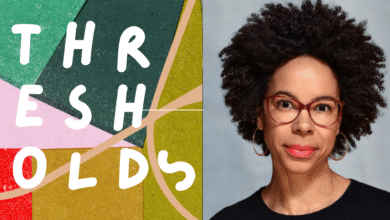The Bookseller – Comment – News for emerging book authors: October 2025

Dear emerging, arising and probably at this point quite-well-established authors,
Here are the most important news ripped from The Bookseller headlines last month (according to me). Let’s skip all the preamble about how every month of 2025 so far has been full of ups, downs, changes, closures and protests. If anything, it’s the perfect time to play the What If game. What if things were better? What if we had control over the stories we told? What if we could help each other? As an optimist and a writer of fiction, I thrive off the notion of What If. So, shall we?
Our first headline is about Amazon, but bear with me here.
Amazon algorithm change has led to ‘volatility in visibility’, warn indie authors
Digital-first publishers and self-published authors have told The Bookseller that book sales have been negatively impacted with “increased volatility in visibility” as a result of an algorithm change to the Amazon marketplace platform.
To heavily paraphrase this article, Amazon – which has for many years led the charge for self-published and indie authors with its built-in DIY platform — has a new algorithm that risks alienating those same authors by pushing their books to the back of the queue, behind ‘popular’ traditionally published books with years of a built-in fan base. So a smaller press that has paid for a promo banner for its debut author might not see much of an impact on sales if this algorithm is anything to go by.
And honestly, if you can’t trust an algorithm in this day and age, who can you trust?
But in all seriousness, what if you engaged with multiple retailers once your book was published? And even better, what if you connected directly with booksellers in real life? The independent bookshops are those who will put a new indie-published author on display, and talk to customers about that book, and continue to be the champion a new author needs. But in order for booksellers to know about your book, you have to engage with them. Visit your local bookshop, reach out to them online, tell them about your book and triple-check that your publisher has made it available for them to sell.
Stand up for your booksellers because they’re doing it for us right now.
Visit your local bookshop, reach out to them online, tell them about your book and triple-check that your publisher has made it available for them to sell.
Intimidating behaviour towards bookshop owners on the rise, according to BA survey
More than half (54%) of bookshop owners responding to a survey by the Booksellers Association say they have noticed an increase in intimidating behaviour towards themselves or their staff.
I wrote last month about how we as authors are being judged not just on our writing, but on our politics and the stands we do and do not take in public. These are not actually new aspects to the life of an author – we have always been made to bear this responsibility because the written word carries a lot of weight. It can change hearts and minds. It can spark global movements. It can inspire political change, for better and for worse. Our pens wield a lot of power, and when we publish our work, we accept that responsibility. No one understands that better than booksellers, and they’re paying the price from a small but aggressive minority online and in person, who feel compelled to verbally accost the people selling books that expand our ideas and knowledge as a reading public.
So, rather than shut up as writers, what if we kept writing anyway? Because (and I don’t mean to add more pressure here) literacy levels are abysmal at the moment and the children need us to be louder about our words, not quieter.
The Booker Prize Foundation launches Children’s Booker Prize
The £50,000 award for children’s fiction is the first prize to be launched by the foundation since the launch of the International Booker Prize in 2005.
If you haven’t seen this news because you’ve been enjoying some healthy days offline, take it in, alert your publisher and prepare your manuscripts accordingly, because the publication eligibility period for the 2027 prize is 1st November 2025 to 31st October 2026.
Not only is this obviously a prestigious accolade to even longlist for, but thousands of copies of the winning book will be disseminated to children. Getting a children’s book published these days usually requires many school visits, the ability to make an engaging PowerPoint presentation for various classes, and developing an entertaining reading voice.
But what if thousands of children got to read your book in their school library, and that kick-started their reading journey? What if that was your story as an author?
This is the line of thinking I like to follow when considering entering a prize. Plus, it will really bother all those book-banning groups of three, especially the ones who hate those pesky books that expand children’s minds and make them feel good about equality and fairness.
Seems as good a reason as any to keep going.
Source link



